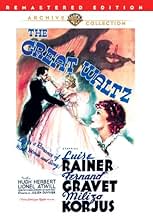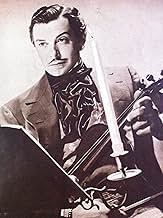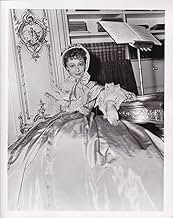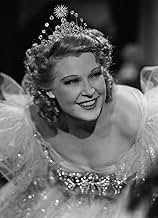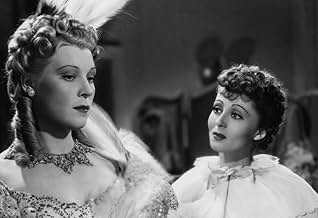Ajouter une intrigue dans votre langueJohann Strauss II pursues his passion for waltzes in 1845 Vienna, facing societal resistance. His music gains popularity through opera singers, leading to fame and personal conflicts between... Tout lireJohann Strauss II pursues his passion for waltzes in 1845 Vienna, facing societal resistance. His music gains popularity through opera singers, leading to fame and personal conflicts between his wife and a passionate affair.Johann Strauss II pursues his passion for waltzes in 1845 Vienna, facing societal resistance. His music gains popularity through opera singers, leading to fame and personal conflicts between his wife and a passionate affair.
- A remporté 1 oscar
- 2 victoires et 3 nominations au total
- Johann Strauss
- (as Fernand Gravet)
- Wertheimer
- (as Sig Rumann)
- Revolutionary
- (uncredited)
Avis en vedette
Swirling waltzes are captured with such superb angles in the Oscar-winning camerawork, it's no wonder David O. Selznick was impressed enough to insist that his own technical staff derive inspiration from viewing the film.
Soprano Miliza Korjus does some excellent trills as the operatic diva who steals Strauss from his wife (temporarily) until the obligatory happy ending. Luise Rainer suffers gracefully (in an insufferable role as the wife!!) and Fernand Gravet does well as the composer. His scenes with Miliza Korjus are what makes the film the gem that it is. She all but steals the film and was nominated for a Supporting Actress Oscar and then disappeared from the American scene, returning to Europe to resume her operatic career.
It's impersonal but it nevertheless displays Duvivier's extraordinary eclecticism."The great waltz" is a good work,made with care and taste and shows that Duvivier could have been a great musicals director,if he had wanted to.Half of the movie consists of instrumentals or songs,which makes sense,for it is a movie dealing with Strauss's life.His private life does not interest that much Duvivier who avoids the traps of a linear biography.However,there are snatches of melodrama towards the end,mainly in the scenes between the moving Luise Rainer and Miliza Korjus in the theater.Fernand Gravey (spelled "Gravet" in the cast and credits)is the only French actor here.He had begun his American career with Mervyn LeRoy in 1937.
All the musical scenes are dazzling ;the "blue Danube" treatment is excellent,a waltz which would be used by dozens of directors,from Renoir ("Boudu Sauvé des Eaux" ) to Kubrik ("2001" ) to Cimino ("Heaven's gate"). Other good sequence: Strauss composing a new tune while he is hearing a horse' s trot.
Le saviez-vous
- AnecdotesToscha Seidel, the Russian virtuoso violinist, was hired especially to dub the solos on the soundtrack for Johann Strauss (Fernand Gravey) and began a new career working as a concert master at MGM and other studios.
- Citations
Johann 'Schani' Strauss II: Thanks for firing me, Mr. Wertheimer. Goodbye, you worms!
- ConnexionsFeatured in Another Romance of Celluloid (1938)
- Bandes originalesTales From the Vienna Woods, Op.325
(1868) (uncredited)
Music by Johann Strauss
Lyrics by Oscar Hammerstein II
Hummed by Fernand Gravey as it is being composed
Sung by Miliza Korjus
Played as background music often
Meilleurs choix
- How long is The Great Waltz?Propulsé par Alexa
Détails
- Durée1 heure 44 minutes
- Couleur
- Rapport de forme
- 1.37 : 1
Contribuer à cette page



